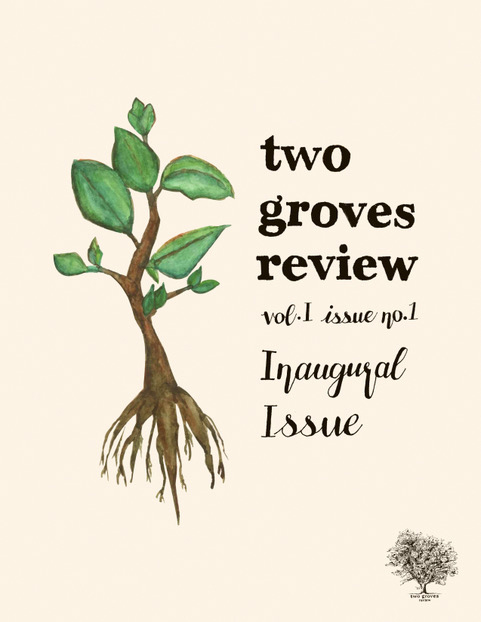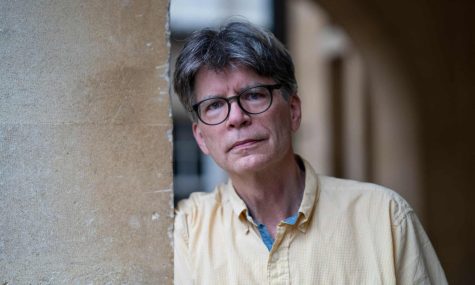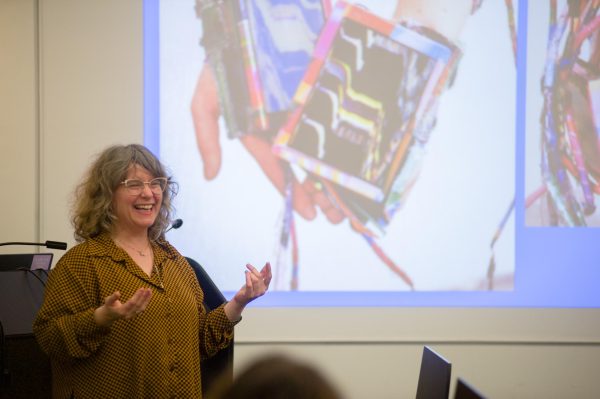An Introduction to Oberlin’s Newest Publication, “Two Groves Review”
The Two Groves Review is a new student publication dedicated to poetry, literary criticism, and “writing about writing.” We seek to bring an attentive, intentional, and clear editorial process to the publication of student work at Oberlin. An online-only magazine, we offer enhancements to the pieces we publish, including annotations and audiovisual accompaniments. The first issue of Two Groves was released on Thursday, Feb. 14 on www.twogroves.com. The inaugural issue featured essays analyzing and incorporating myriad forms of writing through a personal lens, an audio recording of a poet reading their piece, annotations revealing the inspiration for a poem, and other engaging works for a total of nine pieces. Since we plan to publish between two and three times a semester, we are now accepting submissions for our next issue with a priority deadline of March 17 and a final deadline of April 21.
Phoebe Pan (she/her)
Why publish literary criticism? We want to acknowledge the value of undergraduate literary criticism by providing a space for students to publish academic writing that may otherwise never see the light of day beyond a professor’s grading desk. By the time students reach graduate school and begin to publish their work in research journals and reviews, their writing is often oriented toward specific audiences, precluding the opportunity to reach broader readerships.
To make academic writing more accessible, we must employ the same amount of care when editing a critical essay as we would when editing a poem or short story. That doesn’t mean “dumbing it down,” but rather finding a way to contextualize it, peer-review it with those outside of our fields of expertise, and place it within a space where it’s given the same attention as other types of writing. Additionally, since Two Groves workshops critical pieces alongside creative pieces, students are able to explore ways in which academic writing can itself be a creative process.
Granted, literary criticism is an acquired taste and will probably not be the most popular content (though we can dream). But publishing it, as we do in Two Groves, is a start. To include academic writing with poetry and “writing about writing” is to grant it the same power as creative work. Literary criticism, like many other types of criticism, is one of the most generous expressions of intellectual curiosity in the attention shown to a work. It’s a way to reach some answer, in the same way a poem reaches toward a feeling or a personal essay circles around events. A good piece of literary criticism reaches toward some murmuring object of curiosity, and it is the reaching that answers the question of why it matters that we publish it at all.
Bhairavi Mehra (she/her)
The real reason I came to Oberlin was because it was the only college that gave me enough financial aid. The reason I convinced myself that maybe this really was the place for me was the College’s eminent Creative Writing department. During my first year, I was positive that I was going to be a Creative Writing major. I was on my way to doing so, too, until several professors’ departures and the department’s overall instability made me reconsider. Even though I no longer want to major in the subject, I still love creative writing. I have sought related courses in other departments, such as Cinema Studies and Rhetoric and Composition. Still, they never offered quite enough of the collaborative environment I desired. It was around this time that Lee invited me to join Two Groves.
What I really love about Two Groves is our peer-editing and workshop process. All the submissions that we receive are discussed by our current board of 12 people and then the feedback is conveyed to the authors, who continually refine their pieces while in communication with us until publication. Writing for Two Groves is a process, one that involves consistent dialogue. Two Groves creates an accessible, sincere space for those who want to write in a workshop environment but — for whatever reason — are unable or don’t wish to major in Creative Writing. It also creates an avenue for students who write, but have major requirements which prevent them from committing to a workshop course. Even though we’re just starting out, I’ve come to cherish Two Groves and the kind of space it maintains, one I thought I’d never reclaim during my time in Oberlin.
Lee Khoury (he/him)
Like Bhairavi, I am a workshop zealot. I’ve found meaningful commentary, insightful fellow writers, and workable revision strategies in every workshop I join. When the editors drew up plans for Two Groves, I wanted to use the candor and camaraderie of that setting to build a publication that prioritized both author and process. This way, we figured, we would not only provide space for writers to receive nuanced feedback, but we’d also publish writing that has seen many revisions, that the author and publisher agree is just right.
Additionally, as writers involved in both creative and critical disciplines, we aimed to build a magazine for works spanning the critical-creative spectrum, from lyric poetry to traditional lit-crit and those pieces that fall in between. Phoebe talks about accessibility in criticism, and I think our approach does the genre justice. We love formal “academic” criticism, but we also publish plainspoken essays because we believe that the approaches are equally valid; an emotional reaction to a slam poem is just as important to us as a third-person examination of class in a 19-century novel. What we love to do ourselves and what we seek to promote by putting out Two Groves is this, what you’re doing now: engaging with the written word.











